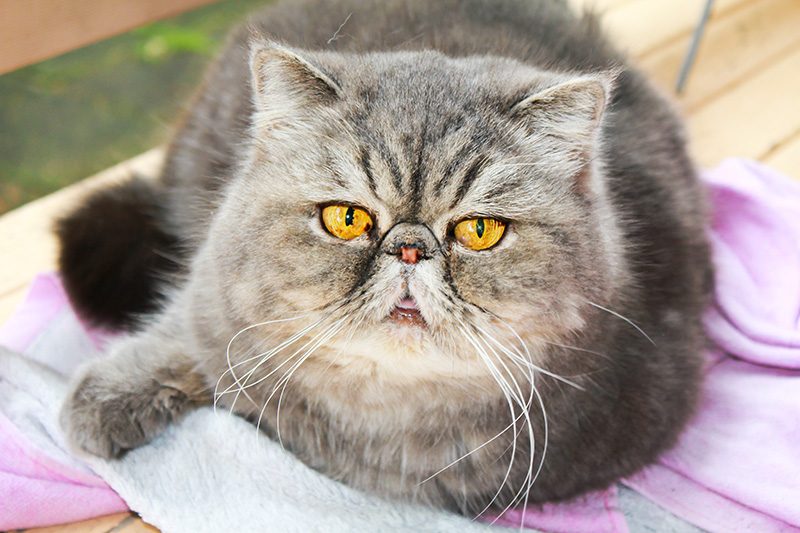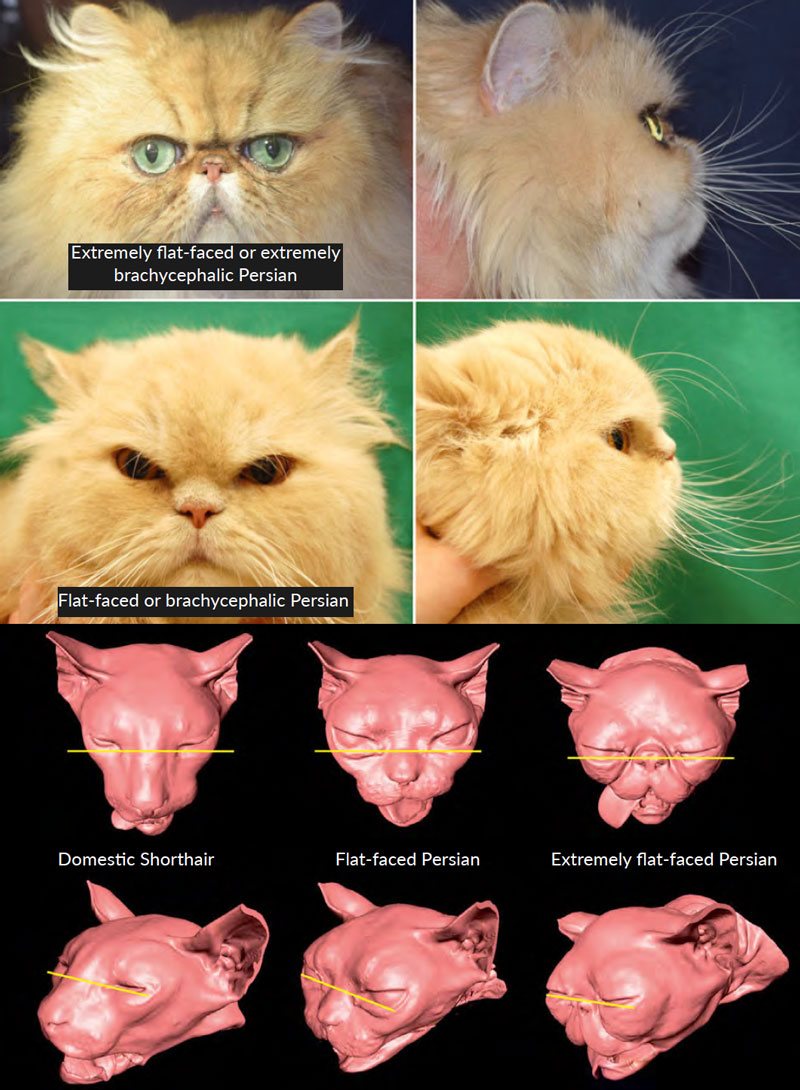Are you a proud owner of a Persian cat? Or are you considering bringing one into your home? Persian cats are known for their luxurious long coats, adorable faces, and laid-back personalities. But just like any other breed, they come with their own set of health issues and care requirements. In this article, we’ll dive deep into the world of Persian cats and explore the common health concerns they face, as well as the best ways to take care of them.
From respiratory issues to dental problems, Persian cats can be prone to a variety of health issues. Their shortened nasal passages can lead to sniffling, snoring, and difficulty breathing. It’s important to be aware of these challenges and take proactive steps to manage them. Regular grooming is a must for Persian cats to prevent matting and skin issues, as their long coats require constant upkeep. Additionally, maintaining a healthy diet and providing them with regular exercise can help prevent obesity, a common problem in this breed.
But don’t worry, we’ll provide you with all the information you need to keep your Persian cat happy and healthy. In the upcoming articles on “http://persiancatdude.com”, we’ll delve into each of these topics in greater detail. Stay tuned as we explore the best grooming techniques, dietary recommendations, and exercise tips to ensure your furry friend leads a long and fulfilling life. And if you have any burning questions about Persian cat care, we’ve got you covered. At the end of each post, we’ll include a list of frequently asked questions with detailed answers. So sit back, relax, and get ready to become a Persian cat expert.

Health Issues and Care for Persian Cats
Persian cats are known for their luxurious coats and expressive eyes, but they also have specific health needs that every owner should be aware of. Understanding these needs and taking preventive measures can help ensure that your Persian cat lives a long, healthy, and happy life. In this article, we will discuss some common health issues in Persian cats and provide tips for their care.
Understanding the Health Needs of Persian Cats
Persian cats have a unique anatomy that requires special attention. They have a brachycephalic (short-nosed) face, which can lead to respiratory issues. Their long, dense coats require regular grooming to prevent matting and skin infections. Additionally, Persian cats are prone to certain genetic disorders and dental problems. It is crucial to be aware of these needs to provide proper care for your feline friend.
Common Health Issues in Persian Cats
Persian cats are susceptible to various health issues, including:
Respiratory Problems:
Due to their brachycephalic faces, Persian cats may experience breathing difficulties, especially in hot and humid weather. This can lead to panting, wheezing, and even heatstroke. Avoid exposing your Persian cat to extreme temperatures and provide a cool, well-ventilated environment.
Polycystic Kidney Disease (PKD):
PKD is a genetic disorder that affects Persian cats. It causes the growth of cysts in the kidneys, leading to organ dysfunction. Regular veterinary check-ups can help detect this condition early and manage it effectively.
Dental Problems:
Because of their facial structure, Persian cats are prone to dental issues. Tartar buildup, gum inflammation, and tooth decay can occur if proper dental care is not provided. Regular brushing of teeth and feeding a balanced diet can help maintain good oral health.
Eye Problems:
Persian cats are known for their expressive eyes, but they are also prone to certain eye conditions such as cherry eye, corneal ulcers, and excessive tearing. Regular eye examinations and proper grooming can help identify and prevent these issues.
Preventive Measures for Maintaining a Healthy Persian Cat
Taking preventive measures is crucial for maintaining the overall health and well-being of your Persian cat. Here are some tips to keep in mind:
Regular Veterinary Check-ups and Vaccinations
Regular veterinary check-ups are essential to detect any health issues early on. Your veterinarian can provide vaccinations to protect your Persian cat against common diseases such as feline herpesvirus and calicivirus. Additionally, regular examinations can help monitor your cat’s weight, dental health, and overall condition.
Proper Nutrition and Feeding
A balanced diet is vital for the health of your Persian cat. High-quality cat food that is specifically formulated for Persian cats can provide the necessary nutrients for maintaining a healthy coat, strong immunity, and proper digestion. Avoid feeding your cat human food, as certain ingredients can be harmful.
Grooming and Hygiene Practices
Regular grooming is essential to prevent matting and skin infections in Persian cats. Their long, dense coats require daily brushing to remove loose hair and prevent tangling. Bathing can be done occasionally to keep their coat clean and free from dirt or parasites. It’s also important to clean your cat’s ears regularly and trim their nails to prevent discomfort and injury.
Exercise and Physical Activity
While Persian cats are not known for their agility, it’s still important to provide them with regular exercise and physical activity. Engage your cat in interactive play sessions using toys or laser pointers to keep them active and maintain a healthy weight. However, avoid overexertion, especially in hot weather, due to their brachycephalic faces.
The Importance of Mental Stimulation
Persian cats are intelligent animals, and mental stimulation is essential for their well-being. Provide them with toys, puzzles, and scratching posts to keep them entertained and mentally engaged. This can help prevent boredom and destructive behavior.
Managing Allergies and Respiratory Issues
Due to their respiratory sensitivity, Persian cats may be prone to allergies and respiratory issues. Common allergens include dust, pollen, and certain types of litter. Keep your cat’s environment clean, use hypoallergenic bedding, and avoid exposing them to cigarette smoke or strong perfumes. If you notice any signs of respiratory distress, such as coughing or sneezing, consult with your veterinarian for proper diagnosis and treatment.
Addressing Dental Health in Persian Cats
As mentioned earlier, dental health is crucial for Persian cats. Regular brushing of their teeth using a cat-specific toothbrush and toothpaste can help prevent tartar buildup and maintain gum health. Dental treats or toys designed to promote dental hygiene can also be beneficial. If you notice any signs of dental issues, such as bad breath or difficulty eating, consult with your veterinarian for a dental check-up.
Recognizing and Handling Genetic Disorders
Persian cats are susceptible to certain genetic disorders, such as polycystic kidney disease (PKD) and hypertrophic cardiomyopathy (HCM). Regular veterinary check-ups and genetic testing are essential to detect these conditions early. If your Persian cat is diagnosed with a genetic disorder, work closely with your veterinarian to develop a management plan that includes medications, diet, and regular monitoring.
Dealing with Eye and Ear Problems
As mentioned earlier, Persian cats are prone to certain eye and ear problems. Eye infections, excessive tearing, and ear infections can occur if proper care is not taken. Regular cleaning of the eyes with a veterinary-approved solution and the ears with a gentle ear cleaner can help prevent infections. If you notice any unusual discharge or signs of discomfort, consult with your veterinarian for examination and appropriate treatment.
Understanding the Persian Cat’s Unique Anatomy
Persian cats have a unique anatomy, which makes them vulnerable to certain health issues. Their short-nosed faces, long coats, and predisposition to genetic disorders require special attention and care from their owners. By understanding their anatomy and taking preventive measures, you can ensure that your Persian cat lives a healthy and happy life.
Conclusion
Taking care of a Persian cat goes beyond providing a warm bed and food. It involves understanding their specific health needs, being proactive in preventive care, and seeking prompt veterinary attention when necessary. By following the tips provided in this article, you can help ensure that your Persian cat leads a long and fulfilling life. Remember, a healthy Persian cat is a happy Persian cat!
Common Questions about Persian Cats:
- Do Persian cats require a lot of grooming?
- Yes, Persian cats have long, dense coats that require daily grooming to prevent matting and skin issues. Regular brushing and occasional bathing are essential.
- Are Persian cats prone to respiratory problems?
- Yes, Persian cats are known for their brachycephalic (short-nosed) faces, which can lead to respiratory issues. It’s important to provide them with a well-ventilated environment and avoid extreme temperatures.
- How often should I take my Persian cat to the veterinarian?
- Regular veterinary check-ups are recommended at least once a year for general health monitoring. However, if you notice any unusual signs or have concerns, don’t hesitate to consult with your veterinarian.
- What should I feed my Persian cat?
- It’s important to feed your Persian cat a balanced diet of high-quality cat food specifically formulated for their needs. Consult with your veterinarian to determine the best diet for your cat.
- How can I keep my Persian cat mentally stimulated?
- Providing toys, puzzles, and scratching posts can help keep your Persian cat mentally stimulated. Engaging in interactive play sessions and spending quality time with them can also contribute to their mental well-being.
- Can Persian cats develop allergies?
- Yes, Persian cats can develop allergies, especially respiratory allergies. Keeping their environment clean, using hypoallergenic bedding, and avoiding common allergens can help manage allergies.
-
Are Persian cats prone to dental issues? -Yes, due to their facial structure, Persian cats are prone to dental problems. Regular brushing of their teeth and feeding dental treats or toys can help maintain good oral health.
-
Do Persian cats require exercise?
- While Persian cats are not known for their agility, they still require regular exercise and physical activity to maintain a healthy weight. Engage them in interactive play sessions to keep them active.
- How can I prevent eye infections in my Persian cat?
- Regular cleaning of the eyes with a veterinary-approved solution can help prevent eye infections. If you notice any signs of infection, such as excessive tearing or discharge, consult with your veterinarian.
- What genetic disorders are common in Persian cats?
- Persian cats are prone to genetic disorders such as polycystic kidney disease (PKD) and hypertrophic cardiomyopathy (HCM). Regular genetic testing and veterinary check-ups are crucial for early detection and management.
